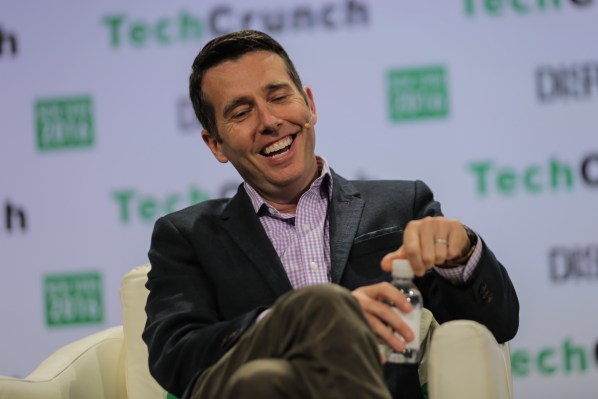Uber, the world’s biggest unicorn, got its start as a limo service that typically cost more than traditional taxi services. But as Uber looks to add an ever more mainstream audience globally, it has added more lower-cost options, and those are now coming into their own. Uber today said that 20 percent of all of its rides globally are now on UberPool services. David Plouffe, Uber’s strategy head, revealed the stat onstage today at TC’s Disrupt conference in New York.
UberPool is the option that lets individuals order rides in cars carrying other passengers going in the same direction. Launched in 2014, Uber said in April that it had passed 100 million Pool rides.
The rise of services like UberPool — and comparable services at companies at Uber’s competitors like Lyft, Via (which is based only on group ridesharing), Ola and others — is notable because it shows that Uber might be sacrificing margin on individual rides, but it’s potentially growing the overall number of rides, giving it a larger economy of scale.
[gallery ids="1320420,1320419,1320418,1320417,1320416,1320415,1320414,1320413,1320412,1320411"]
It’s hard to say whether UberPool is proving to be a better or worse financial bet for the company, as it does not talk financials, but the fact that Uber is continuing to promote it could be a sign of it being a useful service for the company irrespective of that: It means users are left feeling they are being given options that are more economical, and it’s a good message to the regulatory authorities and other organizations that Uber needs to recognize.
UberPool, the argument goes, is better for the environment by putting more people into fewer cars. (That’s putting aside whether drivers are happy taking UberPool passengers, one of the many driver grievances you can read about on forums like this one.)
Still, there is no denying how impressive this company is, and how they have solved what are actually crazy hard problems (all you have to do is use a number of other car-hailing apps to see that the problem does not always beget an easy and seamless solution). As a wave of startups have jumped into the smartphone space to capitalize on the rise of the “on-demand” economy, Uber has perhaps been one of the most impressive of them all. The company has raised more than $1 billion in private backing and its valuation is above $60 billion.
And yet things are not all rosy. The company has come under fire for some of the aggressive tactics that it’s used to attract drivers and users, and for how it has played it fast and loose with existing transportation and employment regulations, among other things.
Today on stage, David Plouffe showed off his extensive expertise in controlling the conversation by holding forth his own position — skills gained through years of working as a political operative for the likes of Barack Obama, whose 2008 presidential campaign was managed by Plouffe. Topics he was presented with were not without thorns: they included the Austin Uber ban; the tipping debate; background checks and how the company copes with crisis management.
As for the answers Plouffe provided? How Uber is making transportation more affordable, and trying to change its default reaction to controversies and navigating other tricky areas are among the topics he covered. Watch the video below to see the interview in full.
